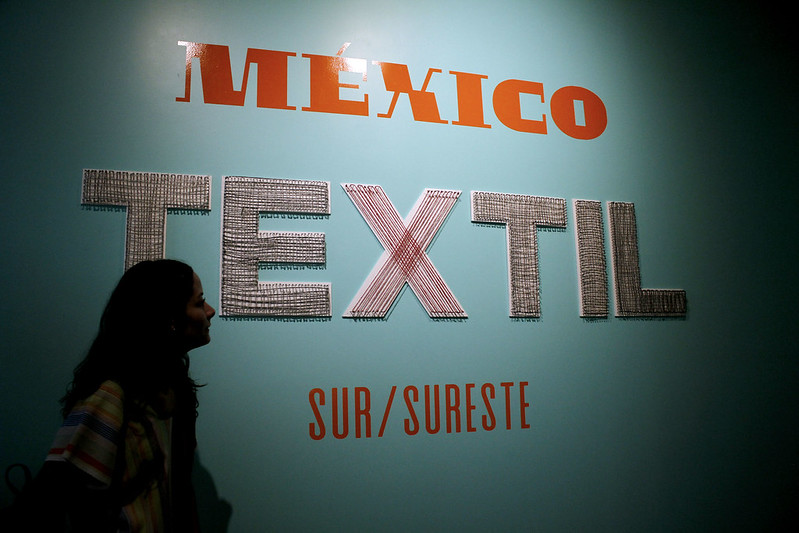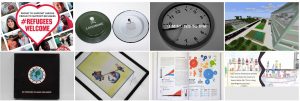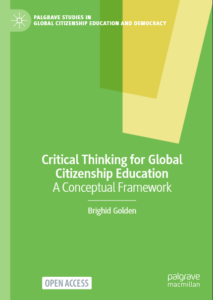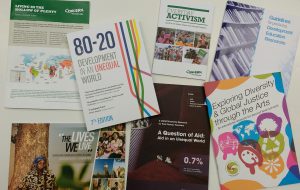
In the Museum of Popular Art the exhibition Mexico Textil-Sur / Sureste was inaugurated, composed of pieces of clothing of native peoples of Oaxaca, Guerrero, Chiapas, Veracruz etc., belonging to collections of the MAP, National Museum of Anthropology, National Institute of Indigenous Peoples, Cloister of Sor Juana and private collectors such as Francisco Toledo. Photo: Maritza Ríos / Secretary of Culture of Mexico City via Flickr CC-BY
This blog is a follow up to Niffy Olamiju‘s workshop report on Decolonising Development Education.
The Method series features pedagogies and methods for the teacher & trainer’s toolbox.
Ideas and approaches that suggest to ‘decolonise our minds and education practices’ remind us that in looking to understand how our world has been strategically designed to benefit very few at the expense of the many, these ideas can be broken down and taken apart. Rather than succumb to the present or lament the past, we can fuse the two in building a whole new future.
One example of this new fusion is the Going Global programme where Swedish students visited indigenous community regions of Oaxaca and Chiapas in Mexico as part of their global citizenship educational studies. An ongoing challenge to programmes such as this, however, relates to academic tourism.
The issue
While learning about decoloniality and bridging gaps between ‘worlds’ the organisers of the trip had to find a way to complete the student exchange which would have avoided the ‘othering’ of the location and people they were meant to learn from.
Legacies of colonialism continue to inform how perspectives are framed and programmes designed. ‘Othering’ may seem familiar when we refer to the history and construction of narratives around ‘savages’ and ‘saviours’, for example. By framing programmes along these lines they can reinforce an industry of academic tourism that continues to perpetuate these ideas today unless efforts are made to consciously avoid this recurring trap of ‘othering’.
The challenge for this group was to figure out a way to bypass this oppressive and imperial form of tourism and instead complete what is known as “intercultural travelling”. This is where travellers ‘de-link’ from colonial structures and travel across global divides to discover that life exists outside of our own perceptions of reality (for more, check out María Lugones’s book ‘Pilgrimages / peregrinajes: Theorizing coalition against multiple oppressions’ (2003) published by Rowman & Littlefield).
In practice
Through the use of various positionality practices students were able to disengage from the traditional competition that comes with the traditional classroom (for more on positionality, see the previous post). Instead, the classroom was transformed into a space where individuals were invited to learn and share knowledge free from themselves and their specific identities, prejudices and beliefs.
By focusing on how to relate and be conscious of how their own experiences affect their world view students were able to transcend their potentially colonial mindsets and engage in course material in a new way.
This process involves an acknowledgement by practitioners as well as students that their knowledge and understanding are also one of many viewpoints and can impact the learning journeys of participants.
Reading articles about and by the indigenous peoples, they were to visit also gave students a unique insight into the lives of the indigenous groups they were learning about outside of a purely Western understanding. Mexico had now become another space for an exchange of information just like the classroom rather than an act of charity.
The driving force behind positionality is its ‘intersectional’ approach to learning which allows a richer understanding of the world and the many realities which shape it.
For more, check out:
- Take a look at the first part of this two-part story, Workshop report: Decolonising Development Education
- Journal article: (open access) Pedagogy for sustainable tourism: reflections on the curriculum space of a master programme in Sweden by Ioanna Farsari in the Journal of Teaching in Travel & Tourism (volume 22, 2022)
- Playful, intra-active, “world”-traveling: A framework for teaching
adults across national borders in feminist ways by Brigette A. Herron (2017) at Adult Education Research Conference - ‘All of me was learning, not just my mind…’: reflecting on study visits and immersion programmes in development education by Colm Regan (2019) on developmenteducation.ie
Niffy Olamiju has a masters in International Relations at UCD and is an editorial intern at 80:20 Educating and Acting for a Better World.
The Method series features pedagogies and methods for the teacher & trainer’s toolbox.






